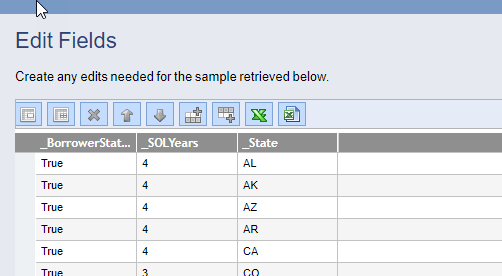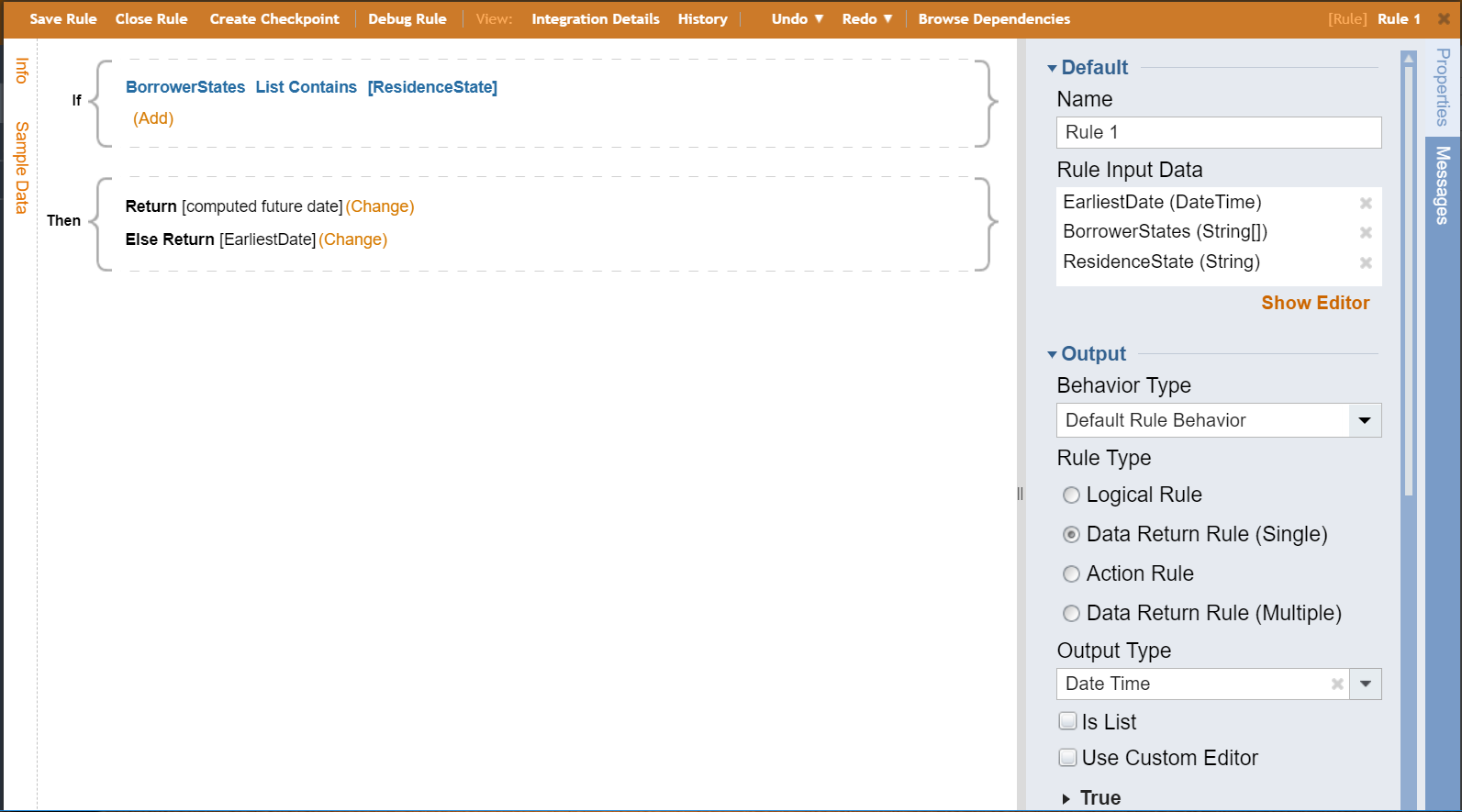Rules
Comments
-
I have a table (lookup) for statue statutes. I need to create a rule to bring in values (from a query) and calculate the statute of limitations expiration date for each account – which is then to be written back to the database.
This is the table :

I am passing in a date, and the residence state and the origination state. If a state does not have a borrower statute, then the output would be the date passed in plus the value in the SOLYears column for the state that is the residence state.
If the state does have a borrower statute, then the output is the minimum of either date passed in plus the value in the SOLYears column for the state that is the residence state OR date passed in plus the value in the SOLYears column for the state that is the origination state.
How do I do this in rules?
If I do a statement rule – then it appears I have to put in every combination of states – I don’t want to do that. Truth table appears the same way.
1710 -
Hello!
One of the easiest ways you may be able to accomplish this task is to place the states into two separate lists; those that use a borrower statue and those that do not. You can then use a rule that checks the state against the list(s) and output the earliest date or the computed date based off of the result.

It will look something like this:
1711